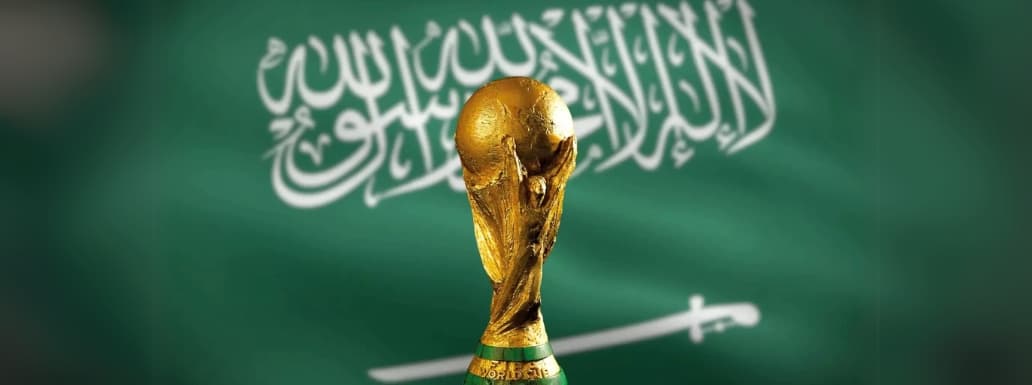Monday 7 April 2025
FIFA World Cup 2034 in Saudi Arabia Sparks Human Rights Debate
Share

The decision to award Saudi Arabia the hosting rights for the 2034 FIFA Mens World Cup has sparked widespread debate and criticism. While FIFA has hailed the bid as the strongest in its history, many human rights organizations and observers argue that the decision represents a glaring disregard for well-documented abuses and ongoing concerns within the Kingdom.
Saudi Arabias bid became a foregone conclusion after Australia withdrew from contention in October 2023, leaving the Kingdom as the sole bidder. FIFA announced the confirmation on November 29, 2024, describing the proposal as unique, innovative, and ambitious. Saudi Arabia received a score of 4.2 out of 5 in FIFAs evaluation, making it the highest-rated bid in the organizations history. Yet, the process and decision have been met with sharp criticism for sidelining critical human rights considerations.
The 2034 World Cups announcement echoes the controversies surrounding Qatars hosting of the 2022 World Cup. As with Qatar, concerns regarding Saudi Arabias human rights record are at the forefront. These include the treatment of migrant workers, repression of LGBTQ+ rights, discrimination against women, and the governments alleged involvement in the murder of journalist Jamal Khashoggi.
FIFAs evaluation described Saudi Arabias human rights risks as medium, citing commitments to respect international standards. However, critics argue that these commitments are largely superficial, failing to address the structural and systemic issues that persist within the Kingdom. Same-sex relationships remain criminalized under Saudi law, with penalties including imprisonment and the death penalty. The plight of migrant workers and the suppression of dissenting voices continue to raise alarms globally.
In response to the announcement, Amnesty International and the Sport & Rights Alliance (SRA) criticized FIFA for failing to uphold its stated human rights policies. Amnesty International described FIFAs assessment of Saudi Arabias bid as an astonishing whitewash, accusing the organization of prioritizing commercial interests over human rights.
A coalition of human rights groups released a joint statement highlighting the severe risks posed to residents, migrant workers, and visiting fans during the tournament. The statement underscored the Kingdoms history of forced evictions, legal discrimination against women and LGBTQ+ individuals, and crackdowns on peaceful dissent.
The controversy has also drawn attention to FIFAs human rights policies, established in the 2016 Ruggie Report, which recommended that the organization evaluate bids based on how effectively hosts plan to address tournament-related risks. Critics argue that FIFA has largely ignored these guidelines, choosing instead to accept minimal and unverified commitments from host nations.
The independent human rights context assessment conducted by law firm Clifford Chance, commissioned by Saudi Arabia, has been widely criticized for its perceived lack of objectivity. A coalition of 11 human rights organizations called the report flawed and warned that FIFAs decision risks associating the tournament with abuses stemming from inadequate safeguards.
Central to the criticism surrounding FIFAs decision to award Saudi Arabia the 2034 World Cup is the organizations apparent deviation from its own human rights framework, as outlined in the Ruggie Report. Authored in 2016 by Professor John G. Ruggie, a former United Nations special representative for human rights, the report was a landmark effort to integrate international human rights standards into FIFAs operations.
The report, titled “For the Game. For the World: FIFA and Human Rights,” laid out clear expectations for how FIFA should approach human rights risks associated with its activities, including the selection of World Cup hosts. It emphasized that FIFA has a responsibility to evaluate how bidders plan to address potential risks and implement safeguards, rather than relying on general assurances or surface-level commitments.
Critics argue that the decision to award Saudi Arabia the 2034 World Cup demonstrates FIFAs failure to uphold the principles outlined in the Ruggie Report. While FIFAs evaluation of Saudi Arabias bid included commitments to human rights, such as non-discrimination, labor rights, and press freedom, the lack of specific and enforceable measures has raised serious concerns.
Despite the controversies, FIFA and Saudi organizers have touted the potential benefits of the tournament, including the growth of womens football. Saudi Arabia has made strides in developing womens sports infrastructure, establishing leagues and increasing grassroots participation. However, critics note that these developments occur within a context of broader gender inequality, where womens rights remain severely restricted.
The omission of LGBTQ+ rights from FIFAs evaluation and the Saudi bids strategy highlights another major gap. While FIFA claims that the tournament will promote inclusivity, the lack of specific measures addressing Saudi Arabias legal and social environment raises serious concerns.
The confirmation of Saudi Arabia as the 2034 World Cup host has reignited calls for FIFA to reform its bidding and evaluation processes. Human rights organizations have urged FIFA to adopt binding measures that ensure compliance with international labor and human rights standards. They also emphasize the importance of consulting affected communities and holding host nations accountable for their commitments.
In a joint statement, human rights advocates vowed to monitor the lead-up to the 2034 tournament and continue pressing for fundamental changes. They argue that FIFAs failure to address these issues risks tarnishing the World Cups legacy, not only in Saudi Arabia but globally.
As the countdown to 2034 begins, the focus will likely remain on Saudi Arabias human rights record and FIFAs role in enabling global sporting events in contentious environments. For many, the tournament represents an opportunity for Saudi Arabia to demonstrate meaningful progress. For others, it is a reminder of the stark contrast between the promise of sport and the realities of politics and power.
Newsletter
Stay up to date with all the latest News that affects you in politics, finance and more.